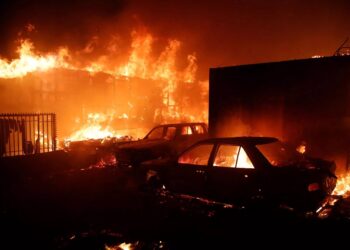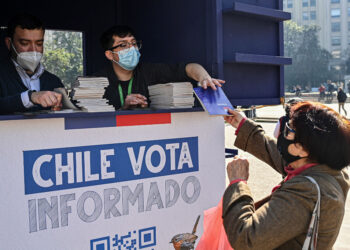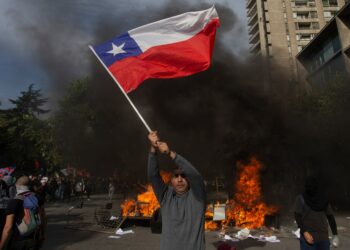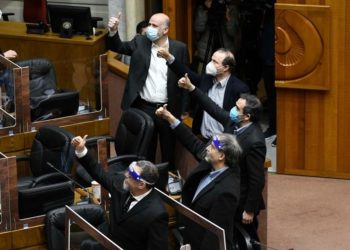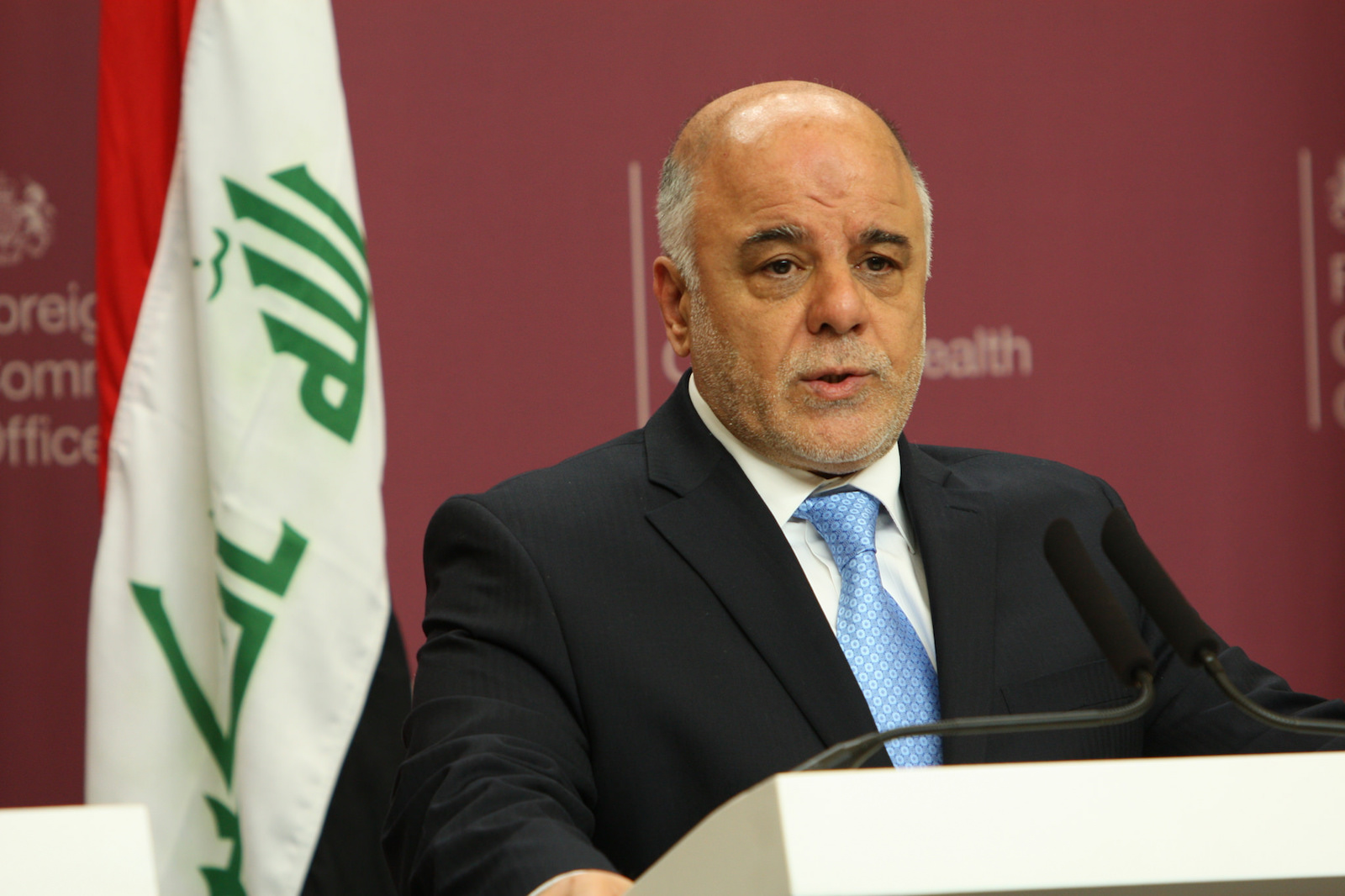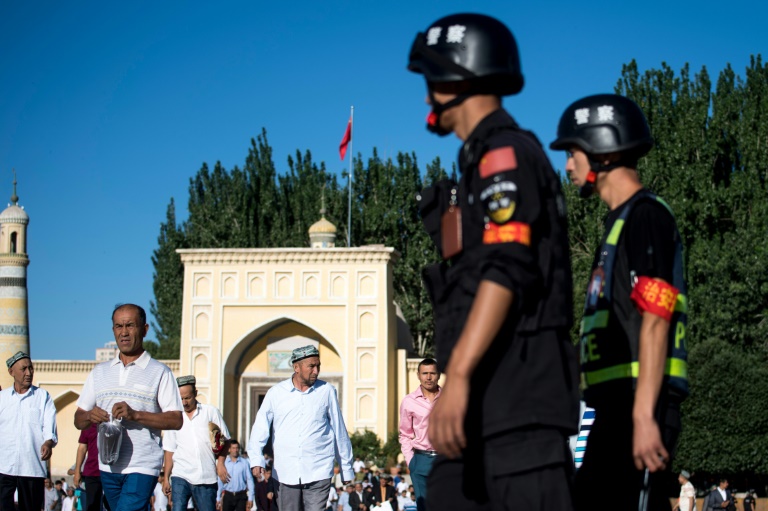Chile is a land of earthquakes. On November 4, in the midst of the crisis engulfing the country, a 6.3 tremor violently shook a large part of the long and narrow land. While it is hard to predict earthquakes, it was not hard to predict the cataclysmic social and political earthquake shaking Chile to the core that started just a few weeks earlier.
The problems had been brewing for a long time in the country of 18 million. It seems, however, that the only one unable to see it coming was the Chilean president, the right-wing tycoon Sebastian Piñera.
In the early days of the crisis, he even apologized for his inability to anticipate the social outbreak. It’s too late now. “It was just a matter of time,” Maru Cherres told me. The nurse and academic honed her street activism during the 1973 – 1990 military dictatorship of General Augusto Pinochet. “We’ve had enough,” she said. “The people have had enough.”
Chile’s Economic Model
The current crisis goes back to Pinochet’s vicious neoliberal economic model, which has been effusively embraced by all post-Pinochet governments from center-left to right. The system has given Chile the dubious honor of being one of the countries with the world’s highest concentration of wealth.
At the heart of Pinochet’s economic model lies a subsidiary state that has essentially abandoned most of the population. Markets were deregulated, and the social security system, education, and health care system were privatized. One of the key architects of the model was José Piñera. He served as Pinochet’s Minister of Labor and Social Security and is the current president’s brother.
A demonstrator uses a slingshot during a protest against Chile's government in #Santiago, #Chile , November 14, 2019. REUTERS/Jorge Silva pic.twitter.com/L06b9FCSjw
— Jorge Silva (@jgesilva) November 15, 2019
Current President Piñera, who hoarded his fortune under Pinochet, is a wealthy financial speculator. He is now a pathetic figure under siege. Throughout this crisis, he has been politically inept, and even his expensive suit now looks ill-fitting.
‘It’s Not About 30 Peso’
Thinking that it was a matter of a few pesos more or less, Piñera tried to settle the crisis by suspending the 30 Chilean pesos ($0,04) hike to Santiago’s metro fare. It was wishful thinking, like trying to cover the sun with your finger.
Whereas the 30 peso fare hike was the spark that ignited the fire, it’s not the fundamental problem behind the crisis, but clearly, Piñera didn’t get that. “It is not about 30 pesos,” people on the streets have told me again and again. “It is about 30 years of abuse, discrimination, and inequality.”
Chileans use a splendid word to convey their frustrations and broken aspirations: el descontento, the disenchantment. “The fundamental motive behind the social unrest,” said distinguished Chilean historian Gabriel Salazar, “is a unanimous rejection of the current model.”
Criticism of the economic model comes even from Piñera’s allies. “Chileans demand their government provide new social justice conditions with the benefits modeled on the Australian, New Zealand or German examples,” Luciano Cruz-Coke, a former minister of Sebastian Piñera, said a few days ago.
Chile’s Discredited Political Class
But it’s not just about economics, as this crisis has many dimensions. It’s also about the nation’s discontent with a discredited political class utterly disconnected from the population. Chile’s political class has become a “profession highly paid,” said Professor Salazar. It has become, he said, “the enemy of the people.” The political class has mostly been uncritical of the economic model and inept at dealing with the inherent problems of the post-dictatorship democracy.
This latter has been evident in the lack of commitment to democratize the current constitution, the 1980s Magna Carta designed and enforced by General Pinochet. While the constitution has undergone minor reforms in the last few years, it is still largely undemocratic.
To change the constitution is one of the key demands yelled out louder and louder on the streets of Santiago and in towns and cities large and small throughout the country. The population is demanding a constitution that guarantees free education and consumers’ rights, but they also want a health system that benefits the poor and an end to the privatization of water and the pension system. And while the government and the opposition have agreed to a referendum on replacing the Pinochet’s constitution – to be held in April next year – the population remains deeply skeptic.
Ethical Crisis
Chile’s problems are not only political and economic; the crisis also has a moral dimension. “Chile is experiencing a serious ethical crisis, which due to the number of cases, their scope, and depth, has become a structural problem in the country,” said Chilean sociologist Carlos Cantero. “There exists an elite class that shows serious ethical failings.”
Chileans used to boast proudly – even with a sense of arrogance – that the country was “not like the rest of Latin America,” that it was a society “free from corruption and impunity.” Whether this was once true or just a national myth, Chileans are tightening their jaws angrily in the face of grotesque cases of corruption and impunity. Largely, these are cases that implicate Chile’s political and economic elite and even the police and military.
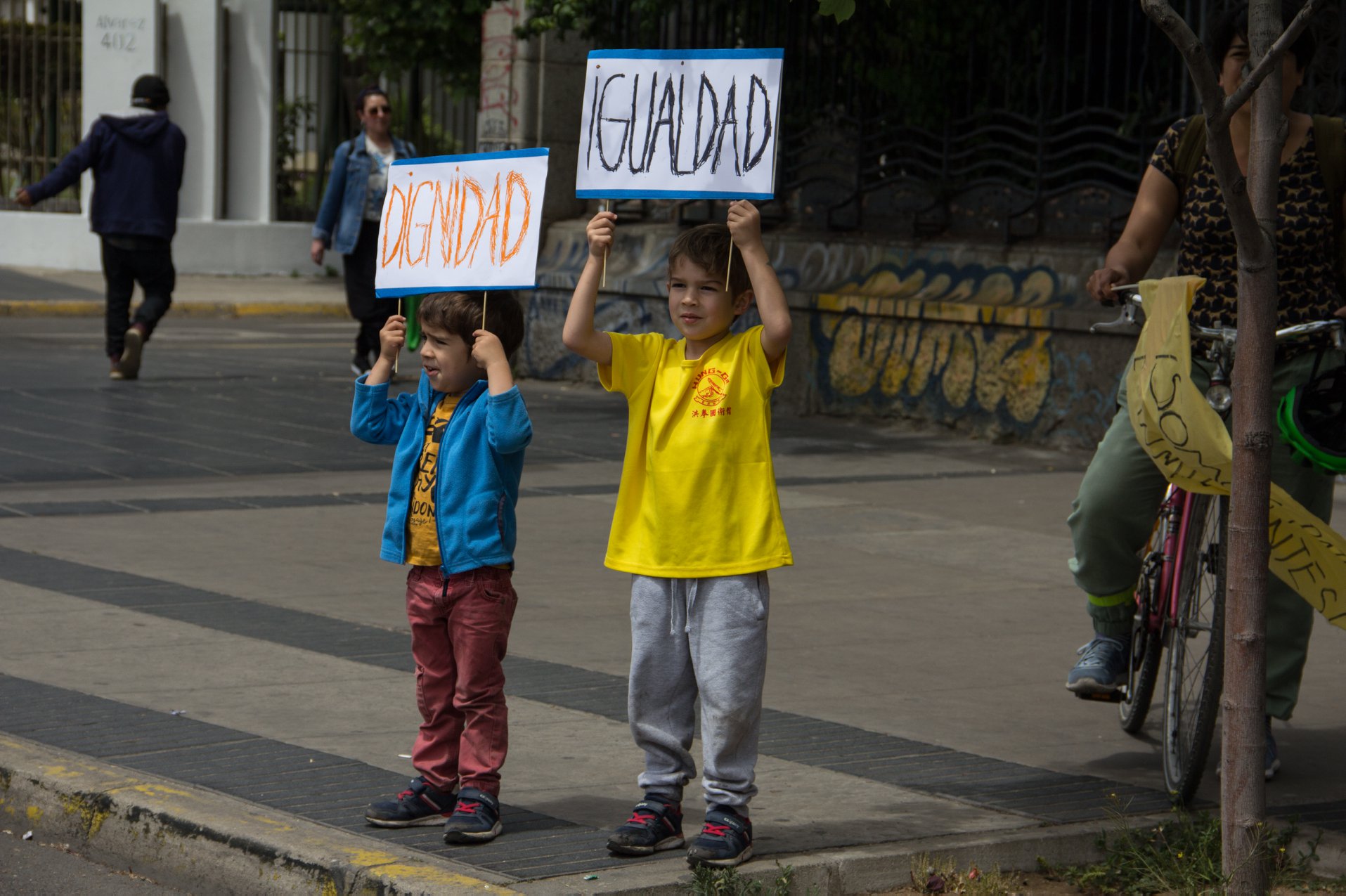
One of these cases, involving entrepreneurs Carlos Alberto Délano and Carlos Eugenio Lavín, became emblematic of the Chilean discontent. The “two Carlos,” as they are called in Chile, are close friends of President Piñera. The two men were found guilty of bribery, massive tax evasion, and making illegal campaign finance contributions, principally to the right-wing UDI party.
In an extraordinary verdict, the two millionaires didn’t end up in jail. Instead, they were “forced” to attend classes of business ethics at a prestigious university in the capital. Since early April, the two entrepreneurs had to attend classes on Friday mornings. As I was once told, “in Chile poverty is placed in jail” while the elite are sent to ethics classes.
Chileans Demand Change
The massive street manifestations won’t stop. “Chile is finally awake,” reads one of the placards leading the rallies. The uprising is a mix of peaceful and violent demonstrations. From the beginning, in response to the 30 peso hike in the metro fare, they are spontaneous with no leaders in sight. The protests are spearheaded by, as historian Salazar put it, “a marginalized, frustrated, and rabid” population.
An end to the Chilean crisis is as hazy as the skies of Santiago, hazy from the smoke of burning street barricades and the teargas fired by the police. Nobody knows how this will end, but one thing is certain: the people demand change.
Disclaimer: The views and opinions expressed here are those of the author and do not necessarily reflect the editorial position of The Globe Post.



